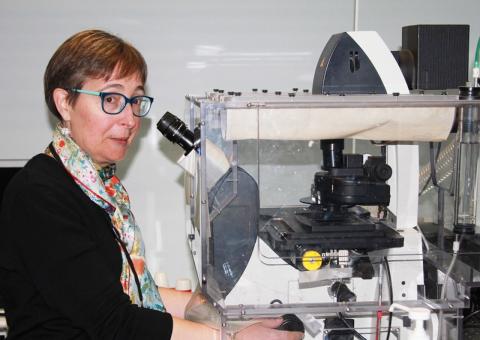
Rachel Méallet-Renault: Bringing out the light
Rachel Méallet-Renault is a physico-chemist, a researcher at the Orsay Institute of Molecular Sciences (ISMO - Université Paris-Saclay/Université Paris-Sud/CNRS), a professor at Université Paris-Sud/université Paris-Saclay and head of the Master of Chemistry program at Université Paris-Saclay. Light is her element. On her research side, she uses it to detect and trap unwanted "objects" such as bacteria or pollutants. On her teaching side, she promotes chemistry among students from the first year of their bachelor's degree to their doctorate.
